
Today, many forward-thinking petrol stations are increasing sales, attracting affluent new customers, and creating a new stable revenue stream with electric vehicle charging stations.
By offering fast and ultra-fast charging stations, petrol stations are entering an exploding market and setting themselves up in the rapidly evolving future of mobility. The need for charging stations has never been more prevalent and fuel retailers around the world are perfectly situated to provide high powered fast charging stations and facilitate this increasingly urgent need.
Beyond the charging stations themselves, offering EV charging can attract dedicated clientele who will go out of their way to charge conveniently. Additionally, these coveted customers often have more time to spend at petrol stations, giving businesses the opportunity to cross- and upsell additional products and services.
This article is part of a series dedicated to fuel retailers where we’ve covered why forward-thinking gas stations are investing in EV charging and how they attract more customers with EV chargers. In this article, we will dive into how fuel retailers can increase petrol station sales with EV chargers and give some tips on how to benefit from EV chargers most.
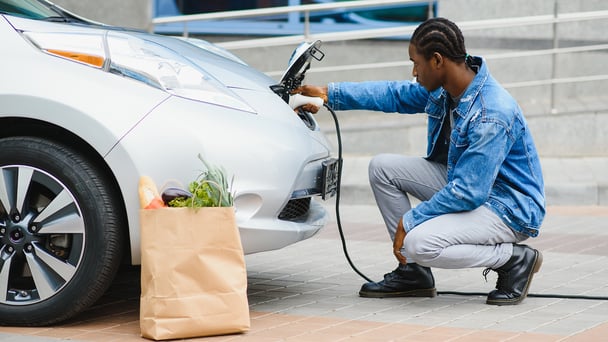
Petrol stations adapt to the customer
Research by the Boston Consulting Group shows that up to 80 percent of petrol stations worldwide are at risk of losing business by 2035 if they don’t adapt their current business model.
Petrol stations are therefore faced with a crucial decision. In addition to the rapid growth in demand for electric cars, the emergence of the sharing economy, and the higher consumer expectations for convenience, quality and personalisation, has created a new environment for the fuel retail industry. And in turn, many see charging stations as a solution for this.
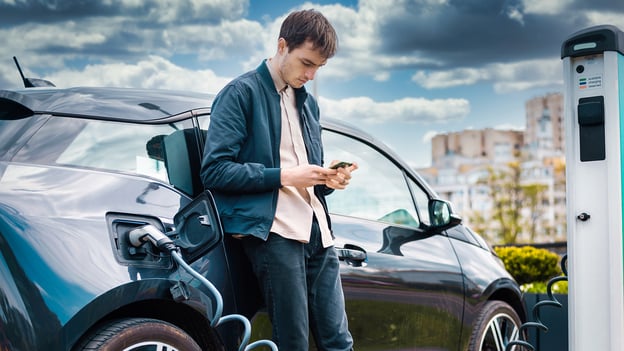
EV chargers attract customers
EV drivers are a highly sought after market. The average EV driver is more educated and wealthier than the average citizen.
To be more precise, current EV drivers are predominantly male, younger than the general population, likely to be working full-time, highly educated, and with a higher median household income.
As a result, EV drivers have more time and money to spend at charging locations than drivers of traditional vehicles. By targeting EV drivers, fuel retailers are not only adding a new revenue stream to their petrol stations, but also creating upselling opportunities with this well-to-do clientele.
Create a new, stable source of income
By setting charging rates for the use of their charging stations, fuel retailers can create a new, stable source of income that complements their traditional offering.
With the current software and available digital management systems, it is possible to adapt this to fuel retailers wishes. For example, it is possible to set a flat fee for each transaction, a price per kWh consumed and per minute, or request different rates during peak and off-peak hours.
Technological advances in smart charging also help with the process of charging electric cars more efficiently and smarter, so that fuel retailers can earn more and worry less. With smart charging, providers can set fees according to grid availability, optimise charging infrastructure, and minimise the load impact of EVs.
Electricity prices are more predictable than fuel prices
Electricity prices are less volatile than fuel prices. As a fuel retailer, you know all too well the margins on fuel are somewhat negligible. Oil prices can rise for weeks or even months at a time, minimising profits. Whilst you have no control over these fluctuations, they do have a direct impact on your business.
Traditional fuels have been subject to significant fluctuations since the beginning of the century. These prices have seen swings in 2021 alone, with the lowest price for petrol at 116.51p and diesel at 120.05p, and the highest price for petrol at 147.59p and diesel at 150.75p per litre.
As electricity tends to fluctuate more with the temperature as opposed to global economics, forward-thinking petrol stations are turning to EV charging as a way to create a new predictable revenue stream.
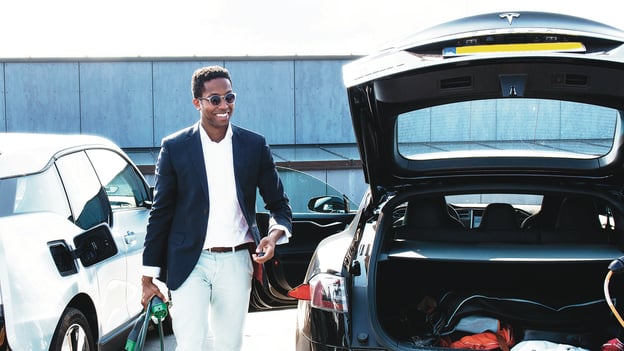
Charging stations offer more sales opportunities
No matter how fast fast charging gets, it will still take longer than filling up with fuel, allowing the driver to spend more time at your location creating more sales opportunities for your business.
According to an EY study, fuel retailers need to further optimise their customer relationship by offering greater convenience and personalisation. This means abandoning a general approach and tailoring offerings based on customer demographics. With the arrival of charging stations, this demographic is changing, which in turn brings additional sales opportunities.
In addition to offering charging stations, petrol stations have two other options for expanding their services. They can adapt their offering based on the time and money consumers have to spend on site, or adapt the charging speed based on the time you want your customers to stay. This flexibility offers many possibilities for expanding the traditional offering.
Whether it concerns EV drivers who want to drink coffee while charging, take a bite to eat, pick up packages or do some modest shopping, charging stations offer petrol stations the opportunity to provide products and services at a higher price.
By replacing a coffee machine for a barista, or placing a traditional sandwich shop instead of a fast food restaurant, these opportunities will help fuel retailers to retain (new) customers.
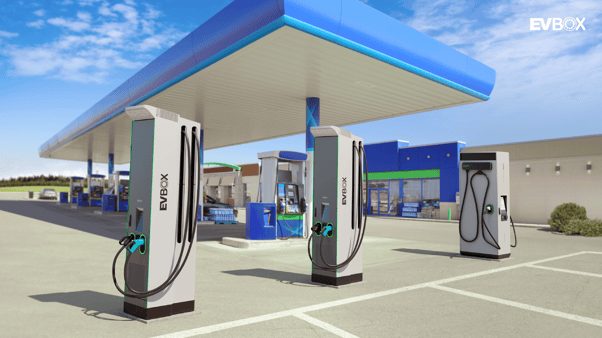
The transition to electric mobility will not affect the day-to-day operations of fuel retailers
From manned pumps to self-service, and from car wash to small shops, fuel retailers have always adapted their offerings to customer needs.
The transition to electric mobility is no different. With millions of EVs on the road, the need for fast charging infrastructure has never been greater. Petrol stations are perfectly positioned to respond to this growing trend whilst preparing for the future. And they can do so without affecting their regular business.
For many fuel retailers, EV charging is an addition to, not a replacement for, the traditional fuel offerings. Fast charging stations can be installed in parking spots and don’t need to take up significant space. These fast chargers are also visible on EV charging maps, like Google and Apple Maps, increasing visibility of the petrol stations helping drivers find a place to charge.
On top of this, by widening the scope to catch potential EV customers, fuel retailers are also addressing consumers' evolving environmental consciousness. Electric mobility is quickly becoming a success story of the environmental movement and many consumers look to EVs as a key tool in the fight against climate change. According to our research, this is true for the majority of citizens on both sides of the Atlantic, not just those who own an EV or are considering purchasing one.
With this in mind, many forward-thinking fuel retailers are looking to EV charging as an opportunity to add a new, stable revenue stream, upsell well-to-do customers with additional products and add an element of environmental awareness, all whilst future-proofing their business.
Learn what fast charging can mean for your businessRead our free ebook to get a complete overview of all fast EV charging possibilities, their differences, and what fuel retailers need to look out for. |
Related articles
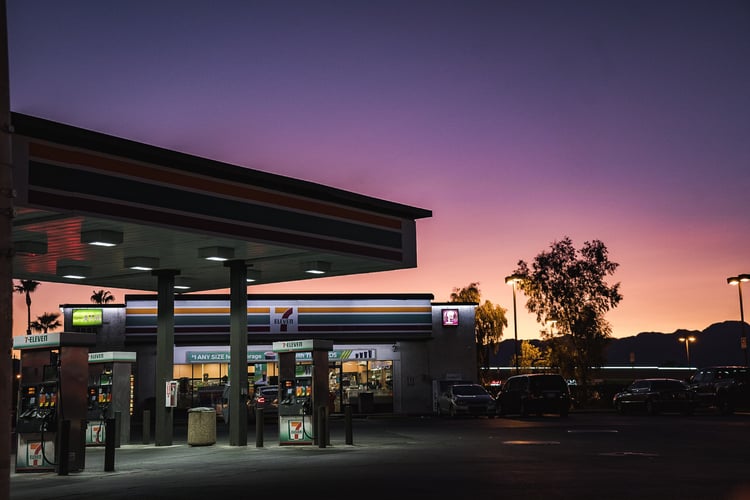
How to increase petrol station sales with EV chargers
Today, many forward-thinking petrol stations are increasing sales, attracting affluent new customers, and creating a...

How modern petrol stations attract more customers with EV chargers
Despite its straightforward name, a petrol station usually offers a lot more than just a pump for drivers to fill up...
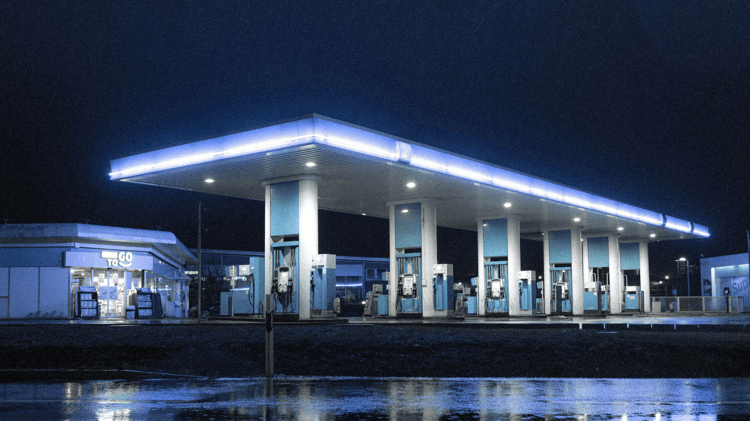
Why innovative petrol stations have EV chargers
It is no secret that electric mobility adoption is booming: there are millions of electric vehicles (EVs) on the road...

